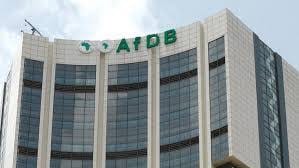AfDB advocates structural solutions to Africa’s economic challenges
The African Development Bank (AfDB) has emphasized the need for urgent structural reforms to combat Africa’s worsening economic challenges, which include currency devaluation, soaring inflation, and an increasing import bill.

The African Development Bank (AfDB) has emphasized the need for urgent structural reforms to combat Africa’s worsening economic challenges, which include currency devaluation, soaring inflation, and an increasing import bill.
Speaking to the News Agency of Nigeria, Kevin Urama, the AfDB’s Vice-President for Economic Governance and Knowledge Management, attributed these issues to both global and local factors.

“Africa’s currencies, including those of Nigeria, have depreciated sharply against the U.S. dollar in recent years, creating economic instability,” Urama said. He cited global geopolitical conflicts, such as the Russia-Ukraine war and the Israel-Hamas conflict, as major contributors to inflation in food and energy prices. These external pressures, he explained, are compounded by Africa’s limited domestic production capacity.
“Over the past three to five years, Africa has faced continuous currency devaluation due to structural challenges. Global disruptions in food and energy supply chains, coupled with our reliance on imports, have made it difficult to stabilize our economies. As countries dip into their foreign reserves to meet import demands, it weakens their ability to implement effective monetary policies to stabilize their currencies,” he noted.
Urama warned that some governments’ decisions to raise interest rates to combat inflation could have negative consequences. “Raising interest rates may help curb inflation, but if they go too high, Small and Medium Enterprises will struggle to access finance, which, in turn, harms productivity and economic growth. The reduced productivity leads to fewer domestic goods, which keeps prices high and further erodes living standards,” he cautioned.
To address these challenges, Urama advocated for a comprehensive overhaul of Africa’s economic policies, particularly in agriculture and energy. He highlighted the continent’s untapped potential, noting that Africa holds 60% of the world’s renewable energy potential and more than 65% of the world’s remaining arable land. “We need to shift focus to developing these resources domestically to reduce our dependency on imports and improve our economic stability,” he stated.
Urama also pointed to Africa’s youthful population—making up more than 40% of the global youth demographic—as a potential driver of innovation and productivity, provided they are equipped with the right support and opportunities. “Africa’s youth can be the key to unlocking the continent’s future economic growth,” he added.














